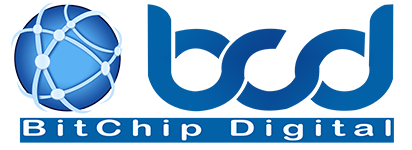Let us discuss the key aspects of our survey results, while narrowing down our analysis to consider the 96% of professionals who were regularly using artificial intelligence (AI) for their SEO strategy.


This comprehensive survey, executed by Bitchip Digital, investigates the adoption and impact of Artificial Intelligence (AI) on Search Engine Optimization (SEO). Through the lens of 500 marketing and SEO professionals, the study explores the integration of AI in enhancing SEO practices and its various aspects. The research aims to highlight the current adoption and importance of AI in elevating SEO strategies in the modern search interface.
The survey targeted 500 Search Engine Optimization (SEO) experts from various industries, ensuring a broad representation of sectors including technology, healthcare, finance, and e-commerce. Respondents were segmented based on their experience level (junior, mid-level, and senior) and the size of their organizations (small, medium, and large). The survey was distributed through online platforms, including professional social networks and email campaigns.

The survey explores AI’s large impact on SEO content strategies and signals widespread adoption of AI to enhance various SEO techniques. Here, we list the adoption trends of AI techniques amongst the 96% of SEO specialists who regularly use AI, all of whom are adopting multiple techniques simultaneously.
The survey included asking the 480 SEO specialists who use AI about the perceived success of the various techniques they used, as listed above. Here is the success rate of each technique based on how many of these specialists found the respective AI SEO techniques they implemented effective-
By comparing the adoption rate with the perceived success rates by adopters, it is clear that certain SEO techniques outweigh others and some techniques deserve more attention. To start with, the most effective AI techniques for improved SEO with over 70% percieved success rate are-

Automating technical SEO audits

Advanced content analytics

Content optimization for engagement

AI for SEO content creation

Keyword research and optimization

Link-building strategies
Secondly, some of the top techniques are not being adopted in proportion to the success rate. Such techniques that should be leveraged more widely for better SEO results include-

AI for SEO content creation

Advanced content analytics

Content personalization for engagement
Our survey on AI in SEO unveils both exciting advancement and valid concerns that could act as hurdles, demanding adaptability and ethical considerations from professionals. This intricate balance signifies the evolving nature of SEO strategies in the AI era where technological innovation and human ingenuity intersect.
The survey findings on future predictions of AI in SEO show a horizon brimming with innovation, propelling SEO towards unprecedented efficiency and personalization. Despite the concerns, we found SEO specialists are largely positive about increased AI adoption in SEO.
The Bitchip Digital survey highlights AI’s transformative role in SEO, showcasing its efficiency in enhancing strategy and automating tedious tasks while maintaining and even improving the quality of outcomes. Key insights from the survey include:
Prioritize AI for Efficiency
High success in automating SEO audits and content analytics indicates a shift towards efficiency. Embracing AI can streamline operations and elevate content strategies.
Explore Underutilized AI Applications
Areas like AI-driven content creation and link-building strategies, though less adopted, show promise for competitive advantages.
Balance AI Use with Originality and Ethics-
Addressing content originality and ethical AI use is vital, underscoring the need for balancing technology with human creativity.
Stay Adaptable to AI Advances
With rapid advancements in AI, particularly in NLP, staying informed and adaptable is crucial for future-proofing SEO strategies.
Invest in Training and Integration
Overcoming challenges in AI adaptation requires ongoing training and effective integration with existing tools.

To sum up, AI is irreversibly redefining the SEO landscape, creating unprecedented opportunities for efficiency, personalization, and strategic insights. At the same time, it presents new challenges in terms of adaptability, ethical usage, and maintaining originality that every specialist must uniquely address.
As AI continues to evolve, staying ahead will require a blend of technological savvy, strategic thinking, and ethical considerations, setting the stage for the next era of SEO.